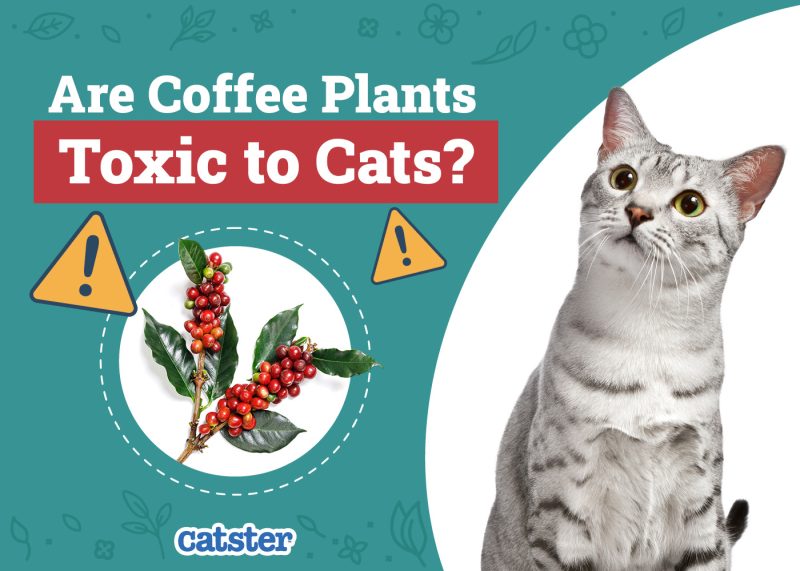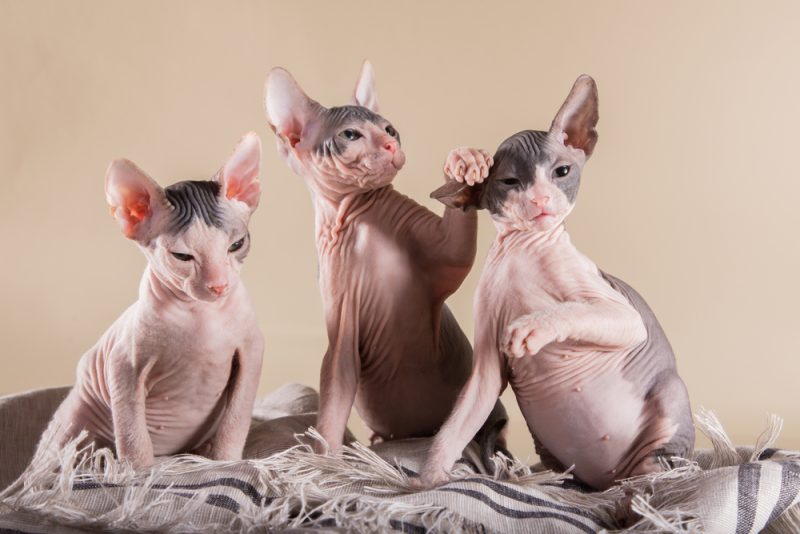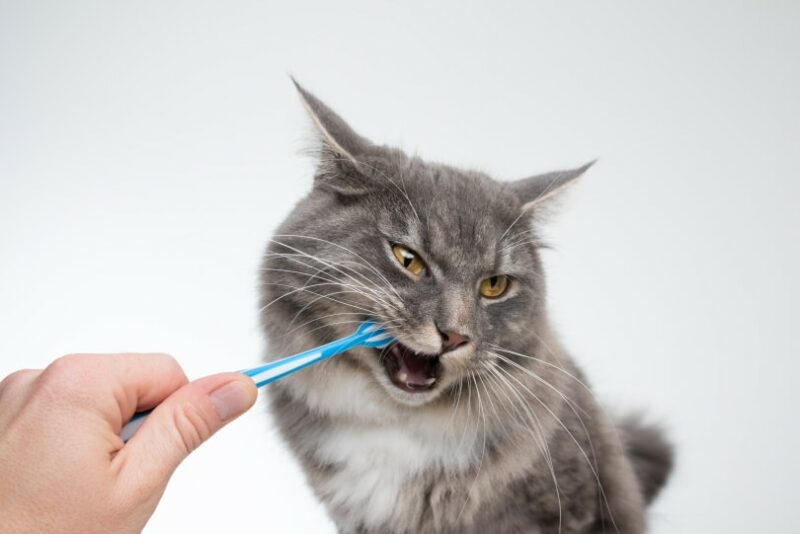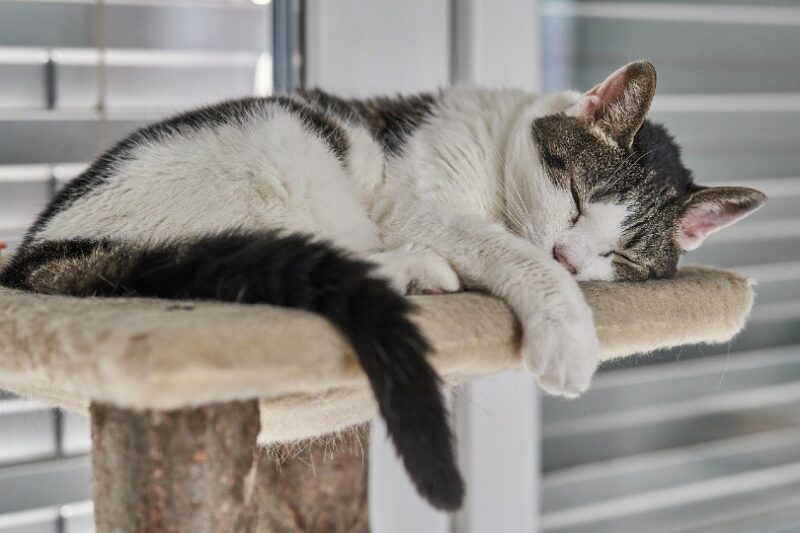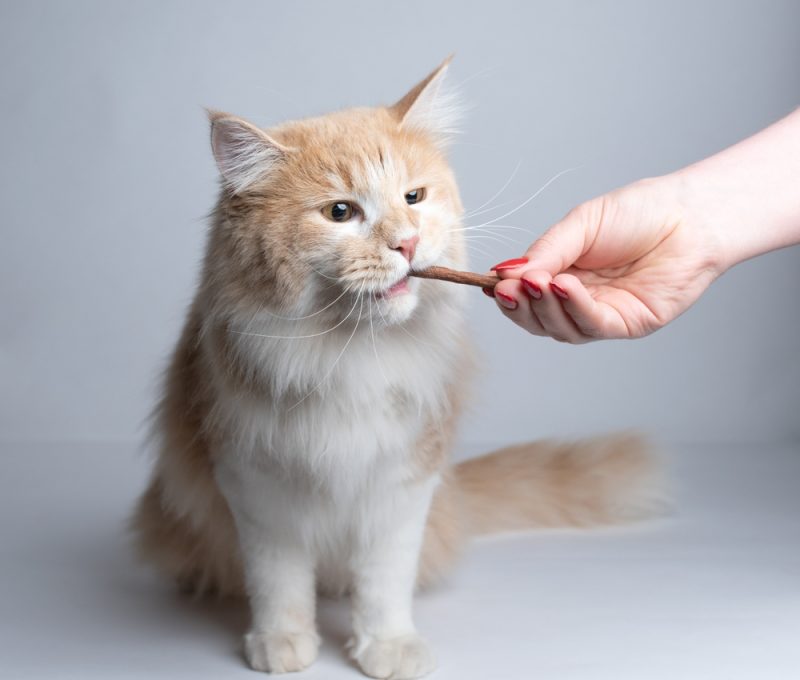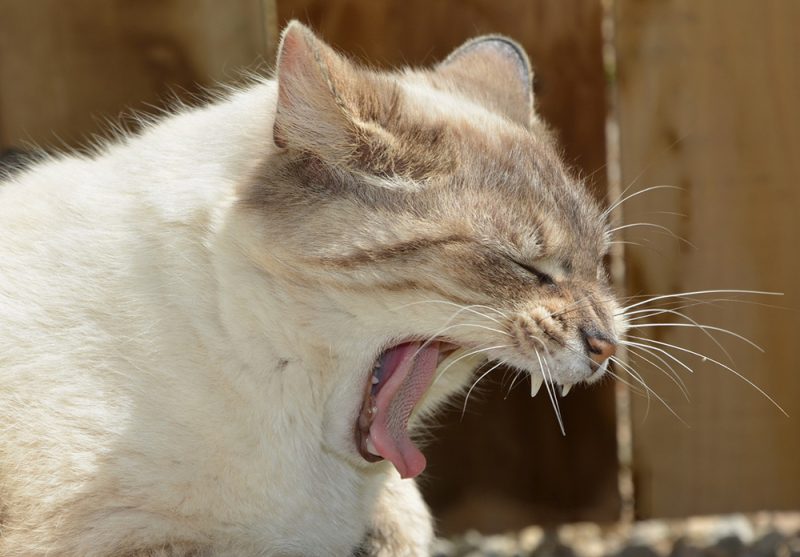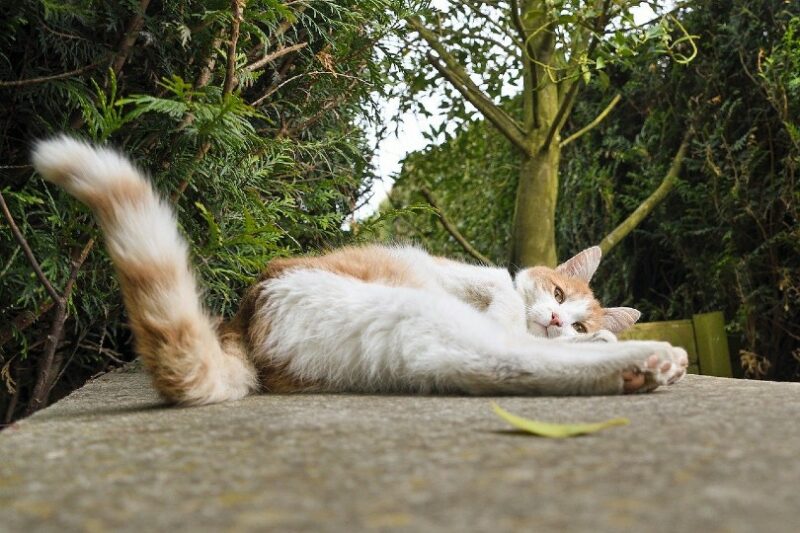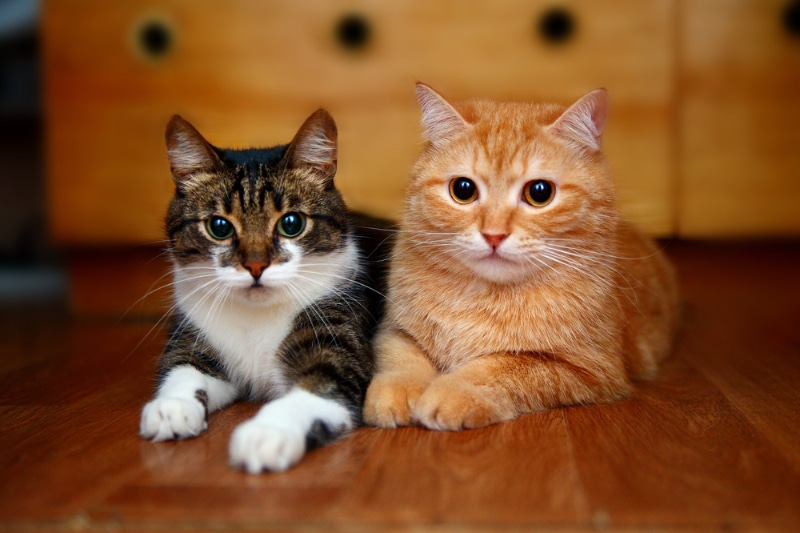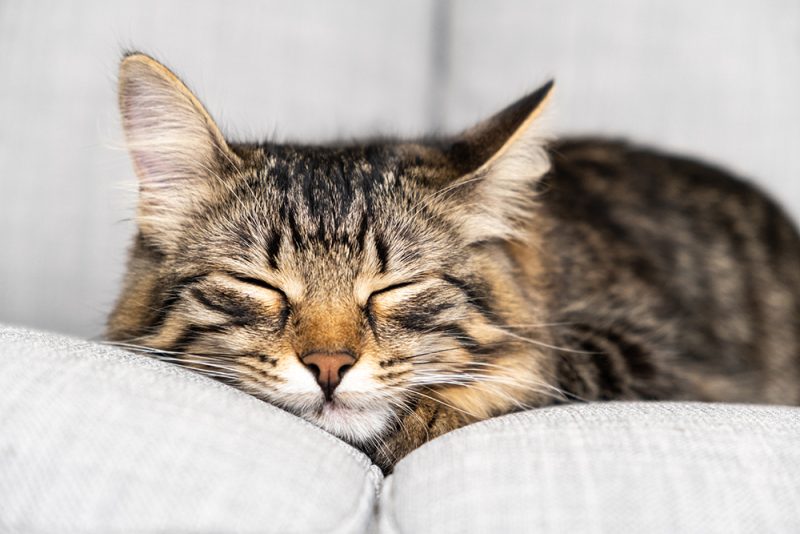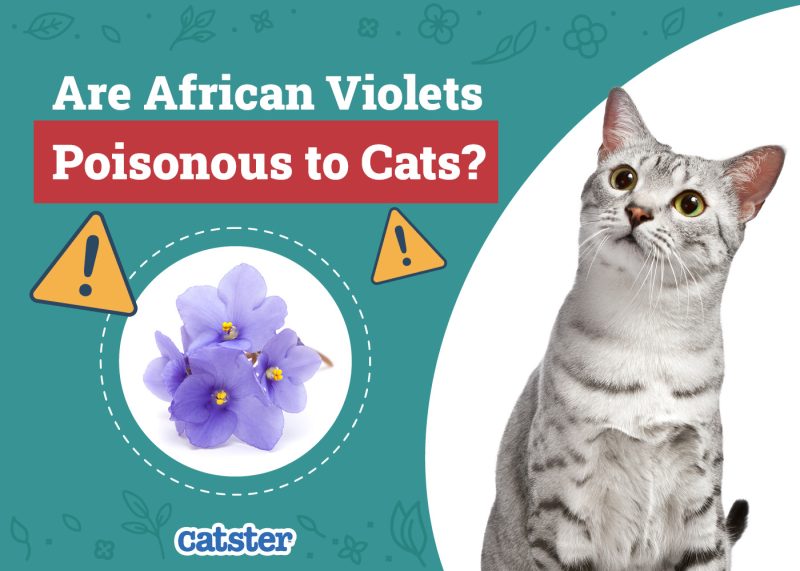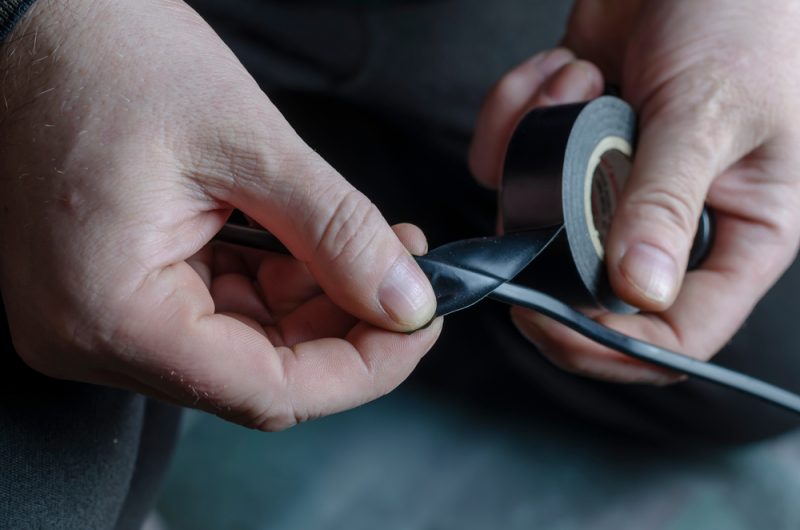The coffee tree, Polyscia guilfoylei, is an attractive species that makes an excellent potted indoor plant. Note that it is not related to the coffee plants used for making coffee beans, such as Coffea arabica. It flowers in springtime, with small white flowers and small berries, though the flowering of indoor plants is not common. Unfortunately, every part of this interesting plant is toxic to your cat.
Whether your cat has ingested part of the plant or brushed up against it, they could experience troubling clinical signs. Read on to find out what these are and what to do if you suspect that your cat is suffering from coffee plant poisoning.
What Is Coffee Tree Poisoning?
The coffee tree contains toxins called saponins, which irritate a cat’s skin, oral cavity, and gastrointestinal tract if ingested. Your cat can be exposed to the toxins when they rub against the plant or orally when they nibble on or eat part of it.
You’ll be relieved to know it’s rare for coffee plant poisoning to be serious. However, if you suspect your cat has been poisoned, it’s still important to discuss it with your vet or poison center.

Signs of Coffee Plant Poisoning
Your cat’s clinical signs depend on how much of the plant they have consumed. If the exposure was brief or they ingested a small amount, you may not see any signs. If the feline comes into contact with or eats a large amount, however, they can show signs like:
- Contact dermatitis
- Depression
- Fatigue
- Loss of appetite
- Vomiting
- Weakness
- Seizures
- Tremors
If you don’t see your cat near the plant, touching it or nibbling it, but you suspect they’ve been poisoned, take them to the vet.
Diagnosis & Treatment
To help with the diagnosis and your cat’s eventual recovery, you’ll need to provide valuable information to the veterinarian. Describe your cat’s signs to your vet and try to remember as accurately as possible when the incident may have occurred. Either bring the plant along or take pictures, so your vet can see what was eaten and how much.
Unfortunately, there isn’t a test for coffee tree poisoning, but your vet will use all the information you provide to devise a plan.
Thankfully, the majority of cats will make a full recovery from coffee tree poisoning. It’s very rare for cats to suffer complications after this incident. However, that doesn’t make what is happening to your cat any less scary.
Conclusion
When it comes to plants, you have to be careful what you have around your cat. It’s best to keep plants known to be toxic out of your home or at least somewhere your cat can’t access.
While cats don’t tend to eat things that are unfamiliar, curiosity and boredom can get the best of any feline. The ASPCA’s list of non-toxic and toxic plants can help you determine which species are unsafe for your pet. So, while you don’t have to sacrifice your love of house plants, you may need to restrict what varieties you bring into your home if you have a cat in your life.
Featured Image Credit: Tixu, Pixabay
